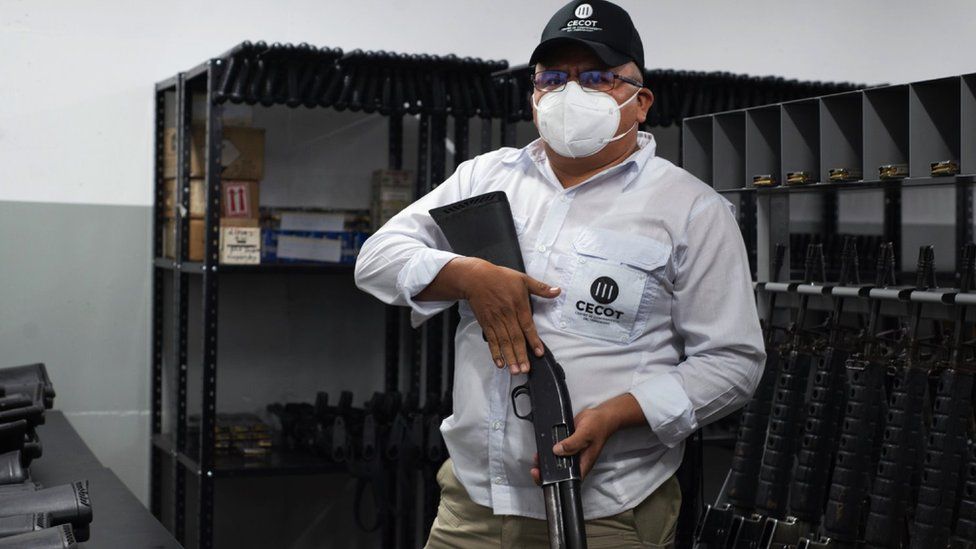-

-
-
Loading

Loading

In El Salvador, the Centre for the Confinement of Terrorism (Cecot) has attracted both praise and criticism. Built by the government as part of President Nayib Bukele's security policy, it is a maximum security prison that houses high-ranking members of the country's main gangs. The facility has been described as a "black hole of human rights" by critics, who argue that prisoner rights are violated and international guidelines are ignored. However, supporters argue that Cecot is necessary to combat the deadly violence caused by notorious gangs such as Mara Salvatrucha and Barrio 18. The prison is heavily guarded and the harsh conditions inside are meant to deter criminal activity. Although the government claims the facility can hold up to 40,000 inmates, it is unclear how many are currently housed there or on what grounds they were selected. Human rights groups have raised concerns about the high incarceration rate in the country and allegations of torture and mistreatment within the prison system. Amnesty International has accused the Salvadoran authorities of adopting a "systematic policy of torture" towards those detained under the state of emergency. During a tour of Cecot organized by the government for international media, journalists were shown the cells and introduced to prisoners convicted of heinous crimes. The government argues that it is dealing with dangerous individuals responsible for gruesome violence. While some Salvadorans support the government's crackdown on gangs, others acknowledge that there have been cases of unjust detention. Overall, the prison reflects the ongoing debate surrounding President Bukele's security policies and their impact on human rights in El Salvador.